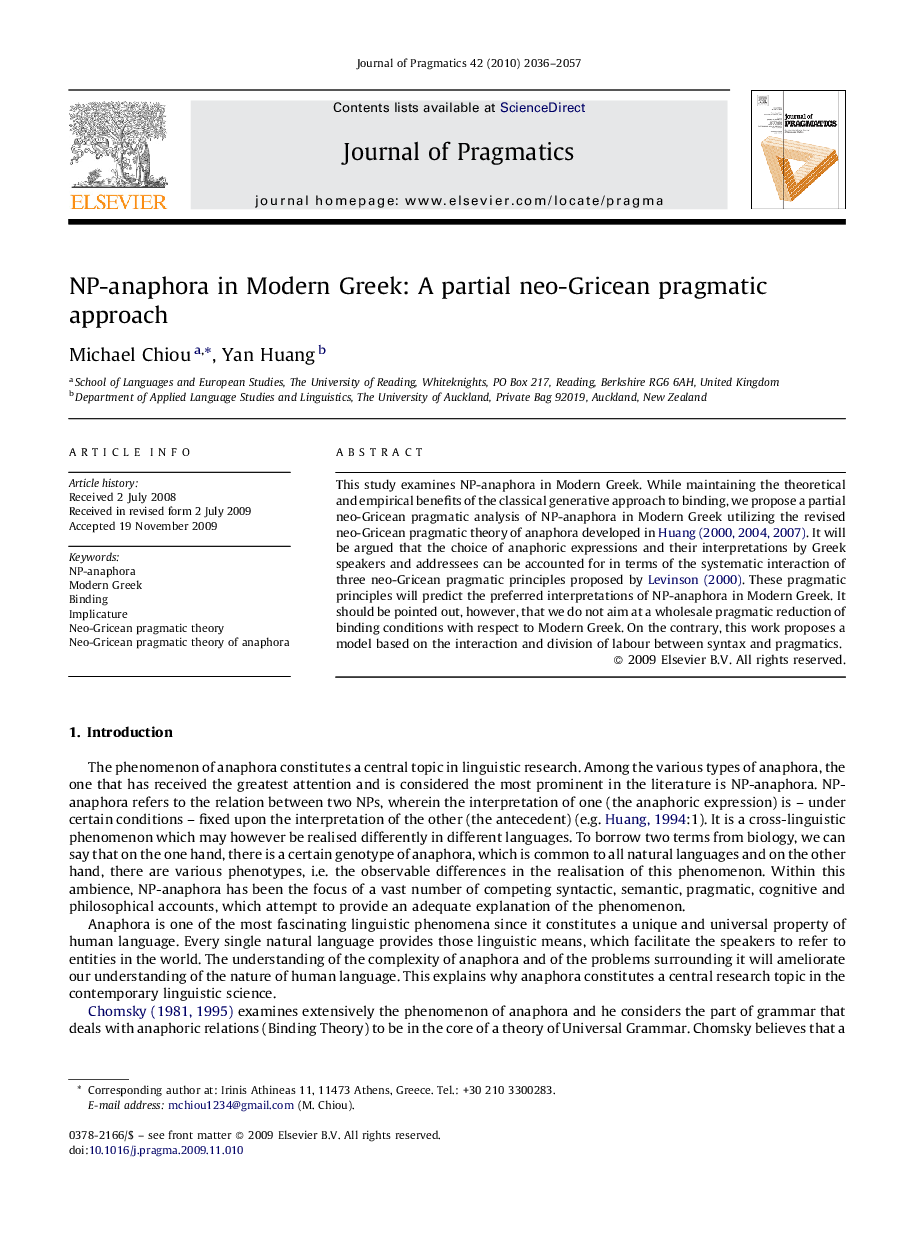| Article ID | Journal | Published Year | Pages | File Type |
|---|---|---|---|---|
| 933685 | Journal of Pragmatics | 2010 | 22 Pages |
This study examines NP-anaphora in Modern Greek. While maintaining the theoretical and empirical benefits of the classical generative approach to binding, we propose a partial neo-Gricean pragmatic analysis of NP-anaphora in Modern Greek utilizing the revised neo-Gricean pragmatic theory of anaphora developed in Huang (2000, 2004, 2007). It will be argued that the choice of anaphoric expressions and their interpretations by Greek speakers and addressees can be accounted for in terms of the systematic interaction of three neo-Gricean pragmatic principles proposed by Levinson (2000). These pragmatic principles will predict the preferred interpretations of NP-anaphora in Modern Greek. It should be pointed out, however, that we do not aim at a wholesale pragmatic reduction of binding conditions with respect to Modern Greek. On the contrary, this work proposes a model based on the interaction and division of labour between syntax and pragmatics.
